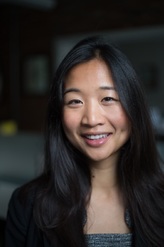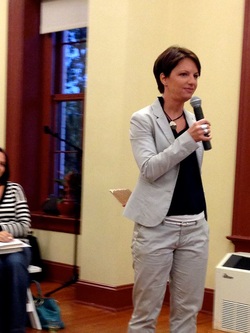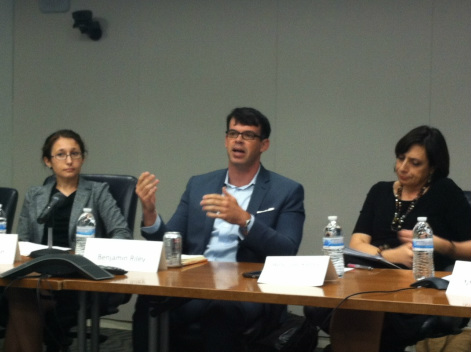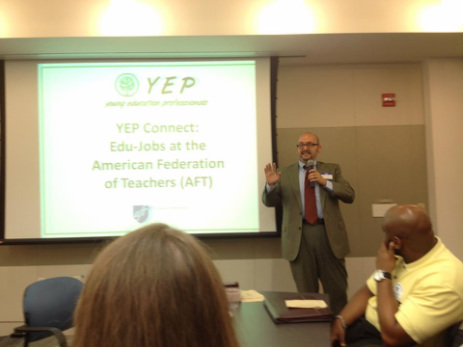
In February, District of Columbia Public Schools (DCPS) announced sweeping changes to its teacher training and evaluation systems. As I read the Washington Post’s coverage of the policy changes, I was left wondering, “How deeply did DCPS engage its best teachers and principals in the conversations that led to these decisions?”
Teachers and principals—education professionals who work in schools every day—have an enormous amount of experience when it comes to the ways that new policies impact teaching and learning in their schools.
Unfortunately, school system leaders often fail to consult with teachers and principals before making new policies or revising old ones. And this failure may not be a simple oversight; multiple state and district leaders have told me that taking the time to include these important stakeholders slows down the decision-making process and introduces complexities to it that they would rather avoid.
In the case of these changes to its teacher training and evaluation systems, DCPS officials stated that educators were included in a task force that recommended these changes, but it is unclear just how involved they were.
Policymakers need to see engaging educators as more than a box to check. Teachers and principals are too often asked to sit on commissions that are formed simply to give decision-makers a rubber stamp for their pre-determined plan, or invited to meetings for the photo op but not given a speaking role, or are spoken for by their union, which may not represent their perspective at all.
Even though it adds time and complexity to the process, engaging directly with great educators is in the best interest of the school district – as well as teachers, students, and parents – for two important reasons.
First, high-performing teachers and principals have unmatched expertise about what works in schools and classrooms to promote student learning – and what doesn’t work. Decision makers would be wise to consult with these on-the-ground experts to uncover the answers to questions like: “Would the proposed change in policy enable teachers to better support student learning?” “Would this policy change affect some students more than others?” Great teachers and principals are committed to the success of their students, and they work more closely with these students every day than anyone else. As such, they are an invaluable source of insights about how to reform the system for the better.
Second, states and school districts rely on teachers and principals to implement policy changes. For any reform to be implemented with fidelity, leaders need the buy-in of in-school personnel. If educators feel like a decision was made without their input, they are less likely to support the rollout of the new policy. As the Washington Post reports, teachers in DCPS are feeling burnt out by the rapid, continuous policy changes over the past 10 years.
One DCPS teacher stated, “No one ever asks us what we need to do better. They just tell us.” This mood is prevalent across the country; when I was a first year-teacher in St. Louis, I was instructed by a colleague not to pay much attention to new district policy directives since the policies would probably change again in a few months.
When districts engage their best teachers and principals, the system’s educators are more likely to feel that their perspectives are represented and that decisions are being made in the best interest of their students. When teachers and principals are included in the decision-making process, they are also more likely to understand the purpose of policy changes, which they can communicate to their colleagues. Savvy states and districts utilize the educators they’ve engaged to educate their peers – via op-eds, newsletters, public meetings, and other means – about the purpose of and plan for policy changes.
I’m no expert on teacher evaluation policy, so I don’t know how much more effective the new IMPACT system will be or whether the new LEAP initiative will be better than the professional develop program it replaces. But based on conversations that I’ve had with America Achieves Fellows – teachers and principals who work in districts all over the country – I am skeptical that these policy changes will result in better teaching and learning in DC’s public schools.
For example, I doubt that giving principals responsibility for formally observing their teachers will result in better observations. Principals have conflicting demands that may prevent them from making objective decisions about their staff’s performance.
An outstanding principal in New York has told me that she gives all of her teachers good marks in their observations because she is more concerned with their working relationship and the culture in the building than she is with making observations for her district’s teacher evaluation system.
Had DCPS leaders spent more time engaging with their teachers and principals before making this policy change, they may have decided to go with independent observers.
DCPS has extremely smart leaders who are passionate about doing what’s best for the students. Their ambitious policy changes over the past decade have enabled DCPS students’ performance to improve faster than any other large U.S. city. Now DCPS is a beacon for education reform.
Engaging its best teachers and principals in conversations about the next phase of reform could help DCPS enact even better policy, ensure that the new policies are implemented by in-school personnel with fidelity, and set an example for stakeholder engagement that other districts would likely follow; it could do more to improve student achievement in DC than any of the individual policy changes that DCPS leaders make.





 RSS Feed
RSS Feed